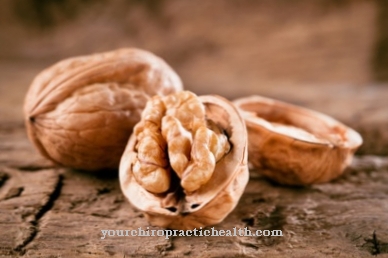Some people only have a cup of coffee every now and then (including a café), others cannot do without their daily mocha or espresso. He stimulates some, and upsets others. Opposing opinions prevail about the effectiveness and tolerance of the fragrant brew. The objections are as old as coffee is known in Europe. Are they right?
Symptoms after excessive coffee consumption

In a way, yes. If you drink too much coffee, it can lead to serious damage, for example states of excitement and confusion. Sometimes you can already feel signs of excess after drinking two cups of coffee. Inner restlessness, palpitations, ringing in the ears, tremors and sweating are the main complaints. Doctors call this degree of overdose a coffee break. If, however, large quantities of coffee are drunk every day over a long period of time and a feeling of dependency has developed, this is referred to as chronic coffee abuse.
People need their coffee at least three times a day to be reasonably fit and fit for work, they claim. Without a doubt, coffee has a stimulating effect. This experience was made centuries ago. They not only collected the tea leaves in Asia, the beans from the cocoa tree in America and the leaves from Paraguay tea, but also the fruits of the coffee bush in Africa. In addition to caffeine, coffee also contains other substances that, although they have a completely different structure, invigorate the body.
Effects of coffee & caffeine
Coffee tannic acid and the roasted fat also contribute to the overall effect of coffee. What is the effect of caffeine based on? As is well known, caffeine is a substance that has a positive effect on the circulation and increases blood flow to the heart and brain. In addition, the activity of the brain and nerve cells is accelerated, which is expressed in the invigorating effect. Reaction, imagination and speed in thinking are also stimulated, but mostly at the expense of the accuracy of execution. Of course, the level of the dose is crucial. If the dose is too high, the body is no longer adequately controlled, as is the case with alcohol consumption. Carelessness and overconfidence are often the result of this carefree state of mind and insufficient self-control and are not infrequently the cause of accidents.
However, if you compare the effect of a cup of coffee with that of a caffeine tablet, assuming the same 0.1 gram caffeine content, you will notice a difference. Drinking coffee must also trigger other mechanisms of action in the body. If we have a cup of coffee, we can feel how we are stimulated. The more often this process is repeated, the stronger the memory of the side effects becomes. The memory ultimately becomes a reflex, that is, the same effect occurs on the nerve path before the substance can even take effect in our body. We feel revitalized even if we just inhale the smell of coffee.
Positive effects of drinking coffee
We remember the pleasant accompanying circumstances that extend to the coffee house atmosphere when a cup of delicious coffee is in front of us, regardless of whether we are aware of this memory or not. Completely different feelings arise when we take a pill. The thought of a headache or a migraine arises involuntarily. This is by no means a pleasurable, at best a colorless process. The pharmacological reactions that caffeine evokes, as well as the conditional reflex mechanism, result in a very complex effect when drinking coffee.
But there is one more factor. The course of biological reactions in our body depends on the starting position of the nervous system. The readiness of our nervous system to react fluctuates between two poles, the state of wakefulness and efficiency and the resting position, sleep. But our body not only fluctuates between these two settings in a twelve-hour rhythm of day and night; in the course of the day there are barely conscious fluctuations that are registered either as temporary tiredness or as special peak performance. The effects of all substances in the organism depend in a certain way on this starting point.
One can assume that coffee, enjoyed in the morning, triggers different mechanisms in the body's regulation than in the evening. So those who slowly wake up and struggle to get going will be particularly invigorated by coffee. Anyone who is quickly ready to perform anyway will tire early from enjoying coffee because they are uneconomical with their strength. And in the evening? The lively one will not calm down because he is overstimulated. The calm, on the other hand, is encouraged to perform again without being exhausted. This explains why so many people can no longer tolerate coffee in the late afternoon, and that coffee can make you tired, which is always noted in disbelief by the coffee group.
Side effects & harm from drinking coffee
Here our body can be compared to an oven that is getting too much draft. The energy is burned uneconomically and the reserves of energy decrease too quickly. Can you now offer coffee? Who can drink it and for whom is it harmful? The answer is actually easy, because anyone who knows how to drink it in moderation and with pleasure will tolerate it. The most important thing is to be moderate. The coffee must not be a driving force for increased work, for stimulating, especially not at night. It must not become a whip with which we demand more and more performance from our body without thinking of its reserves.
That said, nothing should be said against a cup of coffee after lunch to wake up the spirits. Under certain conditions, people with heart disease can also drink coffee; namely when it promotes the economy of the heart work. Since the coffee promotes the work of the kidneys, there is increased water excretion, which is what should be achieved in heart patients. In addition, it causes better blood flow to the heart, but also to the brain, and thus acts like a drug. However, it is advisable to talk to the doctor about it. This also applies to patients with high blood pressure. With them, stimulation of brain activity and better blood circulation can be very desirable and alleviate many complaints. Coffee also alleviates symptoms when your blood pressure is too low.
In the long run, however, the artificial stimulant cannot help. Rather, one must try to find out the cause of the disease. And what about a cup of coffee if you belong to the older generation? It is undoubtedly an aid to circulation in this phase of life. However, one has to take into account that the risk of deceiving oneself about one's own strength and thereby overexerting oneself is particularly great in old age. It should also be emphasized that old people who suffer from insomnia can remedy this with a cup of coffee.
However, children and adolescents should not be served coffee, as their organism tends to react quickly and to exhaust itself anyway.Here one experiences particularly impressively how an unnatural feeling of strength is simulated, followed by restlessness, insomnia and finally exhaustion. Another tip for people with sensitive stomachs. The caffeine increases the secretion of the gastric mucosa, but also the motor function of the gallbladder wall. This can go so far that gallbladder colic is triggered.
In general, the increased gastric juice production is already perceived as unpleasant, belching and heartburn report themselves. Anyone with a sensitive stomach should be aware of this. Since the coffee contains roasted products, which also irritate the gall bladder, the gall bladder should also avoid the coffee. Those who can observe themselves well have certainly made their own experiences and are guided by them.
So it is surely an exaggeration to describe coffee as an evil of our time. Although it is counted among the luxury goods such as tobacco and alcohol, it lacks the real poisonous effect, and if it is enjoyed in moderation, the advantages outweigh it.













.jpg)

.jpg)
.jpg)











.jpg)